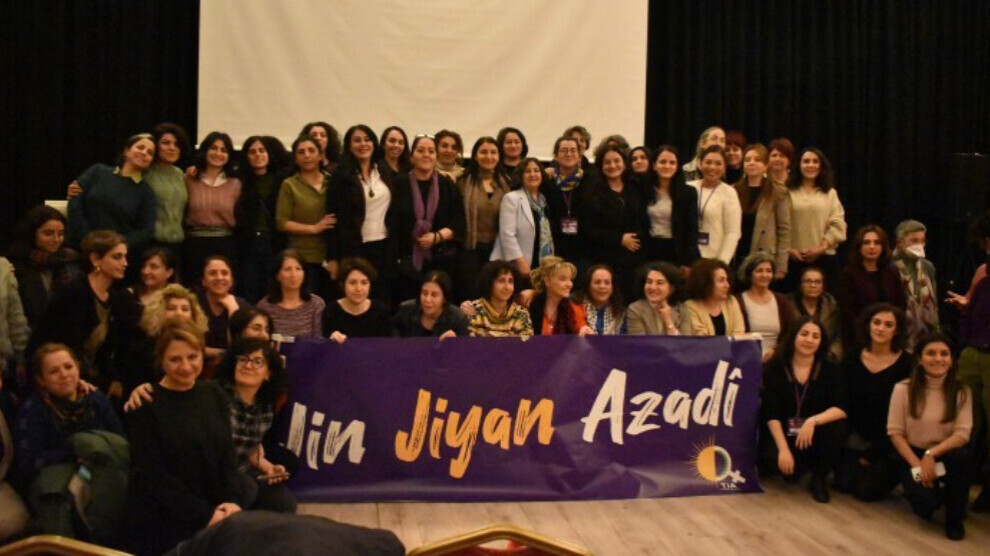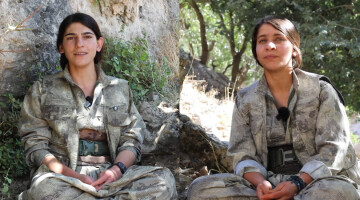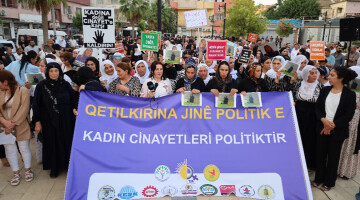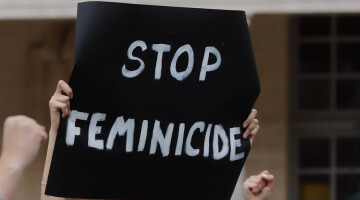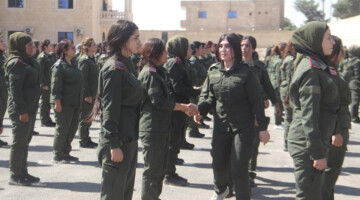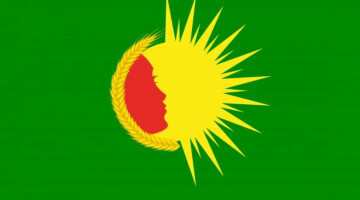The Free Women's Movement (Tevgera Jinên Azad-TJA) made a written statement regarding the conference it organized in Amed (Diyarbakır) on January 13-14, titled "Chain of Silence: Breaking the Walls Surrounding Women Political Prisoners".
The statement noted that the international conference was attended by women from South Kurdistan, Iran, Turkey, Canada, Palestine, Catalonia, Northern Ireland, Basque Country, Latin America and the Philippines and said, "On the first day of the conference, sexist, racist and colonialist prison systems produced by capitalist nation-state systems were discussed. Participants made presentations about their experiences. It was stated that high security prisons are spaces designed by capitalist modernity in Asia, Europe, America and the Middle East to punish and isolate dissidents, especially women."
Pointing to the panels held on the first day of the conference, the statement emphasized that women who struggle for freedom and political rights are imprisoned through judicial manipulations and forced to obey and to give up their struggles in prisons designed by the system with a male mindset.
The statement further included:
"The participants expressed that sexual violence is used as a method of torture, but ofen remains an 'untouched and unspoken' issue by women. It was also highlighted that prisons are spatially designed in a way contrary to women's physiology and sociology, that women are systematically isolated, that their rights to health and communication are systematically violated, that these practices are covered by a veil of silence, and that it is essential to break this silence. Women have transformed these oppressive places of imprisonment into spaces where they organize objection and resistance, and where they continue to learn and develop. Women behind bars participate creatively in art, media, politics and social life.
The participants stated that electrocution, rape, isolation, solitary confinement, communication and disciplinary punishments are part of attempts to break the will of women and make them surrender, and that the struggle and solidarity must continue until these practices against human dignity are brought to an end. The narratives of women from all over the world inspired each other."
The statement emphasized that the ongoing hunger strikes in prisons against the isolation (of Abdullah Öcalan) in İmralı were also saluted.
Some of the decisions taken at the conference were announced as follows:
"* Establishing an 'international women's network' consisting of women's organizations, intellectuals, artists, politicians and volunteers in order to make visible the violations of rights experienced by imprisoned women, raise awareness and ensure solidarity,
* Strongly supporting the struggle and demands of all women political prisoners who are still held in prisons in various parts of the world and resist, and effectively using the local media and international media to this end. Prompting relevant mechanisms for the exposure of the sensitivity and violations of regional and global structures (ECtHR, CoE, UN, AI, HRW, etc.) as an alternative to the domestic legal mechanisms that nation states consider as useful manipulation devices.
* Organizing a global campaign for the freedom of all women political prisoners."

